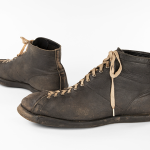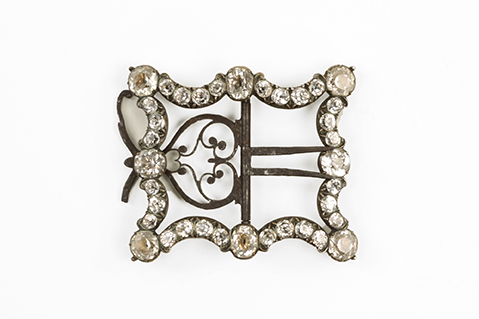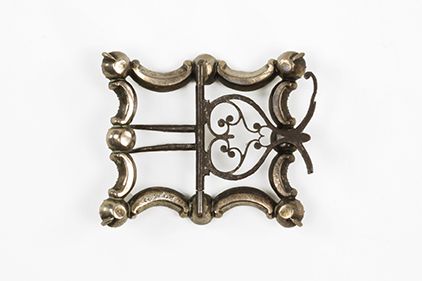Take a peek into our 14,000+ collection with our blog series, From the Vault! Every other week, we’re sharing interesting stories about one of our artefacts.
What is the provenance of this pair? When did they enter the BSM collection?
This single buckle maybe French and dates to the 1730s. They were acquired by the Museum in 2007 from a dealer in 18th century European fashion and textiles.
Are there any features that distinguish this pair from other shoe buckles from the same period and geographical location?
This is a very carefully crafted and delicate D buckle. This type of buckle features an anchor-like prong that slips into an opening similar to a button hole on one of the latchets of a shoe designed to take a D buckle. The other, longer latchet, or strap, feeds through the buckle and is secured with the sharp prong.
Can you elaborate more on the materials used to make this pair?
Like pieces of jewellery, expensive buckles were made out of silver and ornamented with gems, both real and imitation. 18th century taste was for diamonds but high-quality glass paste ‘gems’ were also widely used and accepted in high society.
In the 17th century, Englishman George Ravenscroft discovered that adding lead oxide to molten potash glass increased the clarity and heaviness of glass, making it ideal for faceting into faux gems. By the 18th century, the addition of red lead further increased the clarity of this paste glass as did backing it with metal foil.
Who would have worn this pair and where or for what occasion?
Buckles replaced ribbons as the stylish way to keep shoes on in the middle of the 17th century. Considered scandalous at first, this new fashion took several decades to come to common use. Even famed English diarist Samuel Pepys felt compelled to record on 22 January 1660, “This day I began to put buckles on my shoes.” This buckle, dates to the mid-18th century and was most probably worn by a woman. Its curvilinear shape reflects the influence of the Rococo aesthetic.




